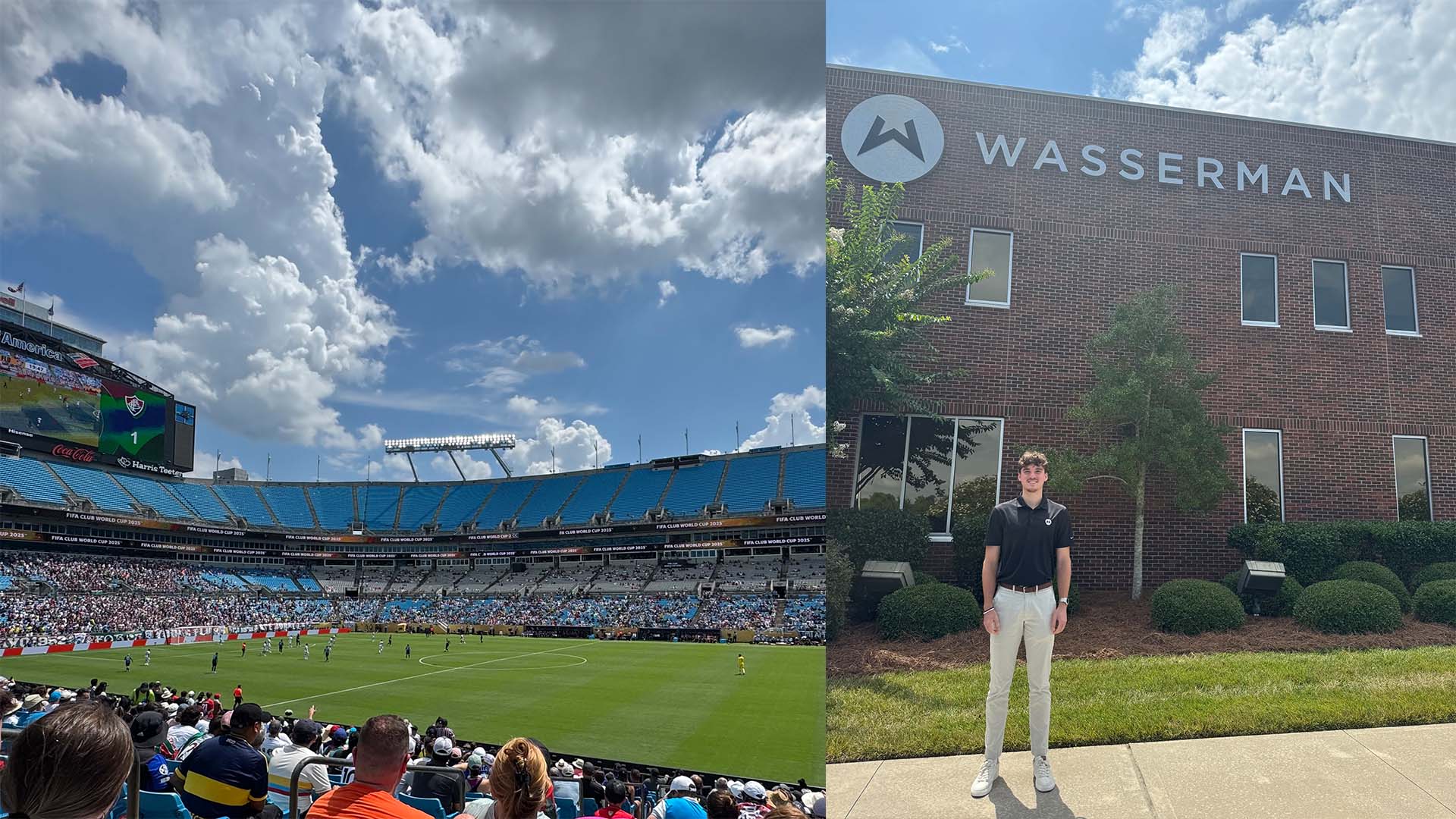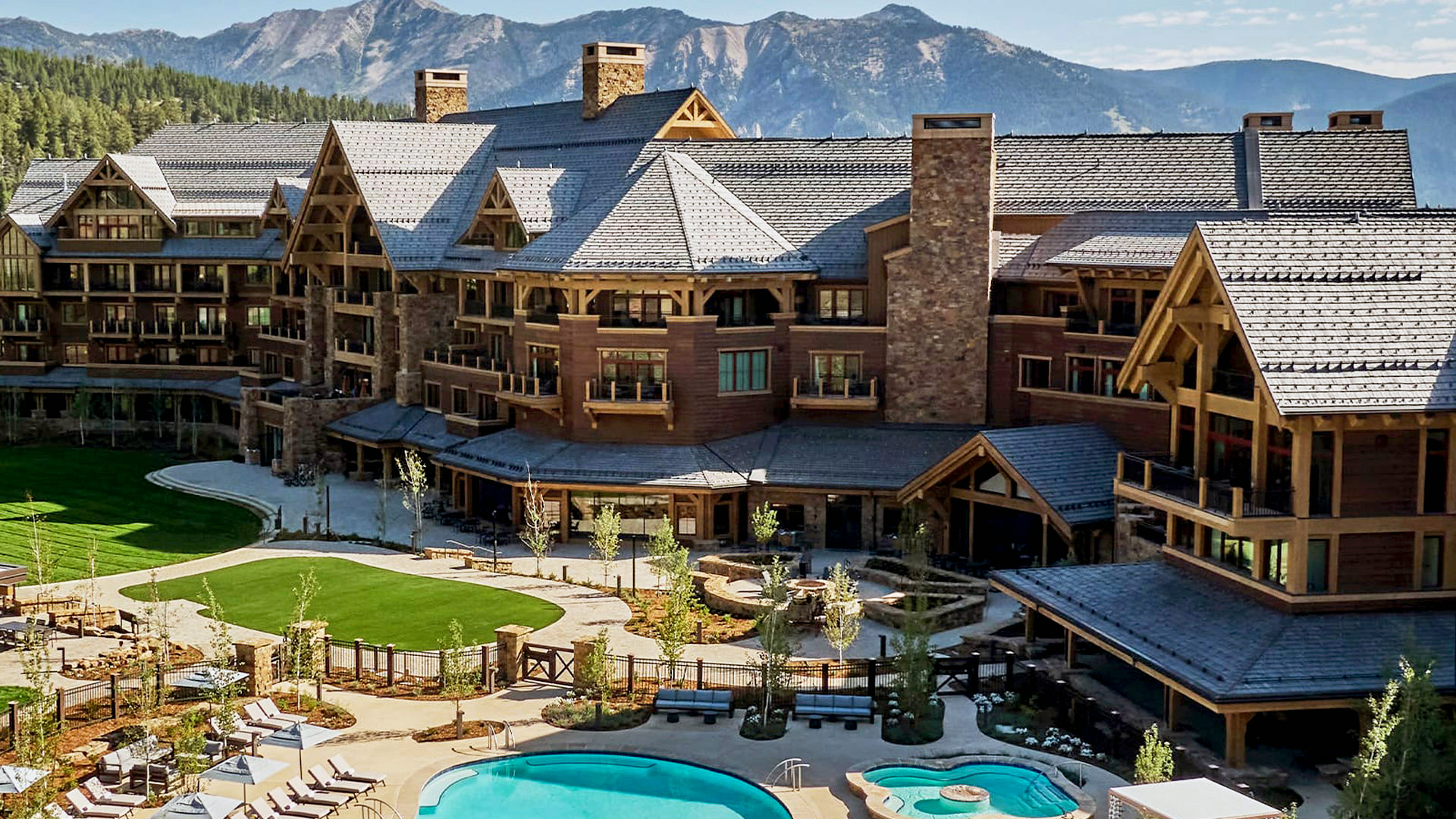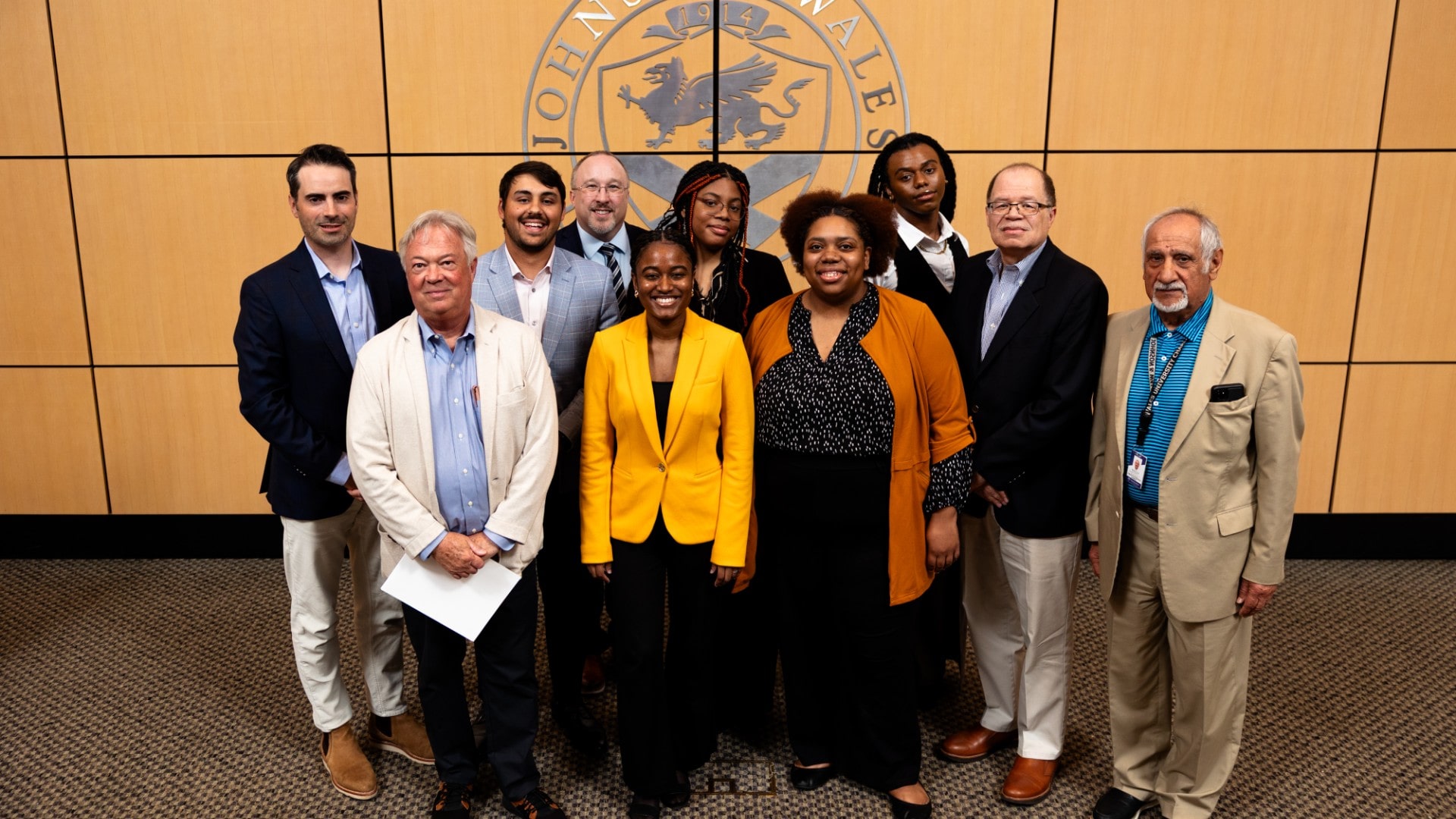Innovation and Optimism at the 2021 Hospitality Summit
“Paths to Prosperity” was the theme of the 2021 Hospitality Summit, hosted by Johnson & Wales University’s International Hotel School in the College of Hospitality Management. This year’s presenters had plenty of exciting plans to discuss.
New hotels are being built all over the world, people are going out, dining out, and traveling, and the hospitality industry is being more creative and inventive than ever to exceed the expectations of guests and travelers.
Design-Forward, People-Centric: Authentic Design for Hospitality
The Summit began with keynote speaker James Lehouiller '08 Hon. of DiLeonardo International, a firm that has designed close to 40,000 hotel rooms in over 60 countries. Mr. Lehouiller described the process of designing hotels to meet the needs and standards of the brands and hotel owners.
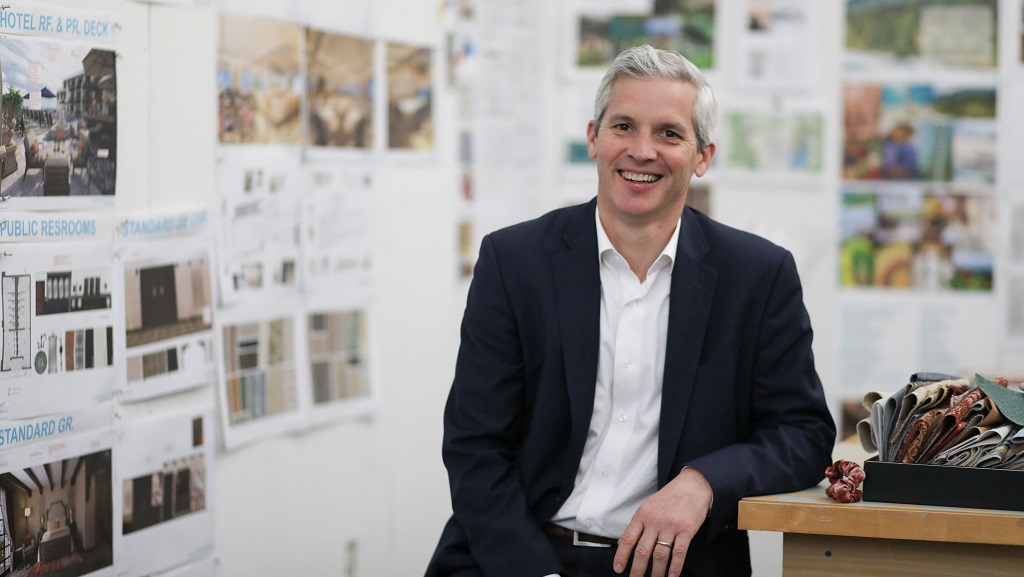
Lehouiller explained that each type or level of hotel brand has a different level of design standards. Branded select service hotels, such as Fairfield Inn and Hampton Inn, are the most prototypical and have the least flexibility with their brand standards and designs. Because guests have specific expectations of these types of hotels, the brands are “heavy on standards”, and the style and design need to be consistent. However, his firm does have opportunities to add some local authenticity to the design of these types of hotels. As an example, Lehouiller described the design process of the dual-branded Home2 Suites/Hampton Inn in Las Vegas, starting with research of the history of Las Vegas, with the goal of finding some things that could influence the design. The designers then created a “narrative that will help make this property unique and stand out even though it's prototypical.” The phrase “There is no love without LV”, was one of the concepts developed during this process and is a theme which is used throughout the lobby.
Lehouiller continued with an explanation of standards for “classic brands”, such as the traditional Marriotts, Hyatts and Sheratons, which still have strict design standards but offer more flexibility than select service, especially internationally. He said, “The great part now is that within the last probably 10 to 12 years these brands have started to respond to the emergence of boutique and independent hotels by trying to make their brands a little bit more authentic, unique,” while still timeless. In his description of the design of the Grand Hyatt Al Khobar in Saudi Arabia, he highlighted the design of the restaurant, which incorporated fabrics native to the Khobar area.
The hospitality industry is being more creative and inventive than ever to exceed the expectations of guests and travelers.
Lifestyle brands, such as W and Curio, dictate fewer design standards and allow the design to tell an “authentic story”. However, the designers have the most opportunity to let their creativity loose when they get the chance to design independent hotels, and Lehouiller said that there is lots of growth in the independent market. DiLeonardo’s design plan for the new Hammetts Hotel in Newport, Rhode Island, was “a working waterfront hotel that was respectful of the long history of the Newport waterfront.” Using the color palette of historic local homes and a “built-in mercantile” look, the hotel fits right into the seaside architecture.
State of the Global Hotel Industry
Steve Hood, senior vice president of research at STR, shared detailed data of the state of hotel demand through 2020 and to-date in 2021, as well as a glimpse into the near future. While acknowledging that we are experiencing “the most complicated recovery” in history, he provided a bright picture of that recovery.
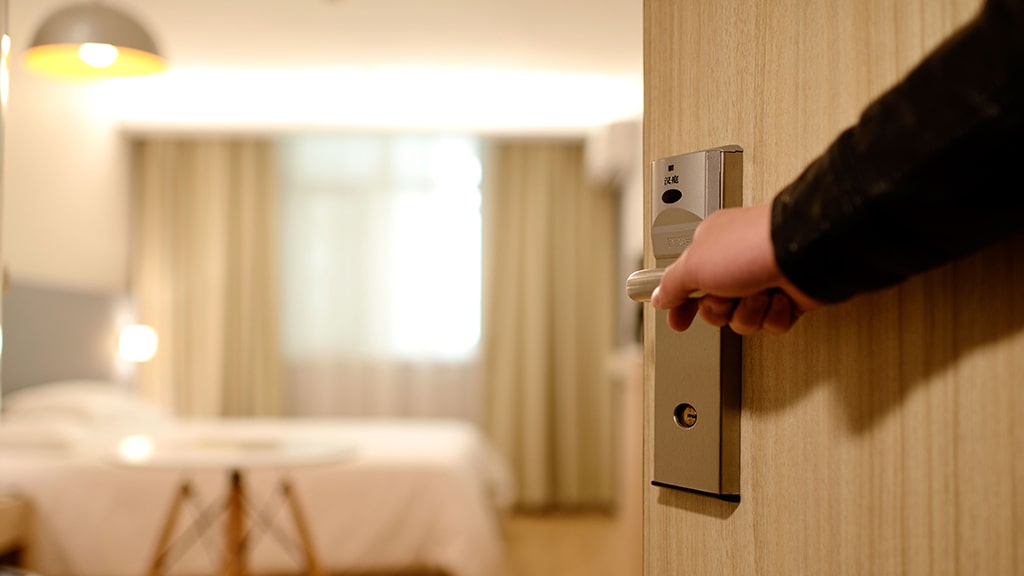
Hood explained that it was a “misconception that every hotel in every destination was doing awful in 2020”. Many destinations actually did well in 2020. For example, Sanya, a resort destination in China, beat all historic ADR (average daily rate) and occupancy records in 2020. Other getaways such as the Maldives, Swiss ski resorts, the Cotswolds, Myrtle Beach, and the Florida Panhandle were remote enough to feel like safe vacation places during the pandemic. While “the big destination gateway type cities were significantly impacted by COVID”, smaller cities, rural areas, and “quieter beaches” were much less affected.
Looking at the present and near future, Hood said that rate recovery has generally been stronger than occupancy recovery. Some rates are close to 2019 levels, and occupancy is “trending in the right direction”. He calls what we’ve just experienced “Economic Downturn #4”, after 1993, 2001, and 2008. He said that this recovery cycle is going to surpass all of the others, “from a deep drop to a sharp recovery”. One promising indicator was July 2021, when domestic hotels set a record with the highest ADR on record for the United States hotel industry.
Leveraging Technology to Achieve High-Touch Experiences
The Hospitality Summit continued with a distinguished panel of hotel executives:
- Nicole Lau '12, Senior Communications Manager, U.S. & Canada, Marriott International
- Rodahl Leong-Lyons, Regional Vice President, Operations & Sales, Americas, Hyatt Hotels
- Dana Shefsky '96, Director, Digital Guest Products, IHG Hotels & Resorts
JWU asked the panelists to discuss how technology can enhance the guest experience and improve personalization.
A resounding message from the panel was that, in the context of technological enhancements and contactless experiences, hotel guests want flexibility, choice, and control. Leong-Lyons said that it is essential to offer digital experiences that mirror the experience of interacting with a live person, “so the guests can choose at any point in time how they want to engage with us.” Shefsky said that “hospitality is always going to be a people-centered business. That’s never going to change,” and emphasized that technology should “enhance, not replace” the service.
Hotel guests want flexibility, choice, and control.
It’s not only the guests who need to be considered when developing and introducing new tech. Lau said, “We live and breathe by the success of our people,” and that any new developments have to help “optimize the employees’ workday”. According to Shefsky, “digital tech enhancements need to work, and they need to work without a great deal of team member intervention.” An example of this point is a story that Lau told about a hotel’s new “destination elevators”, an optimization system which groups passengers going to the same floor on the same elevators. Guests press the button for their floor at a central panel, and the panel tells them which elevator to board. “The elevators were opening and closing so quickly that people couldn't run fast enough to get to their elevator. So we had to place a lobby attendant in the actual elevator bank to correct it, and we were doing this for weeks.” They finally learned the solution that the elevator doors could be programmed to stay open five seconds longer, fixing the problem. The experience educated executives on the importance of finding technological solutions to technological problems, and not settling for labor-intensive quick fixes.
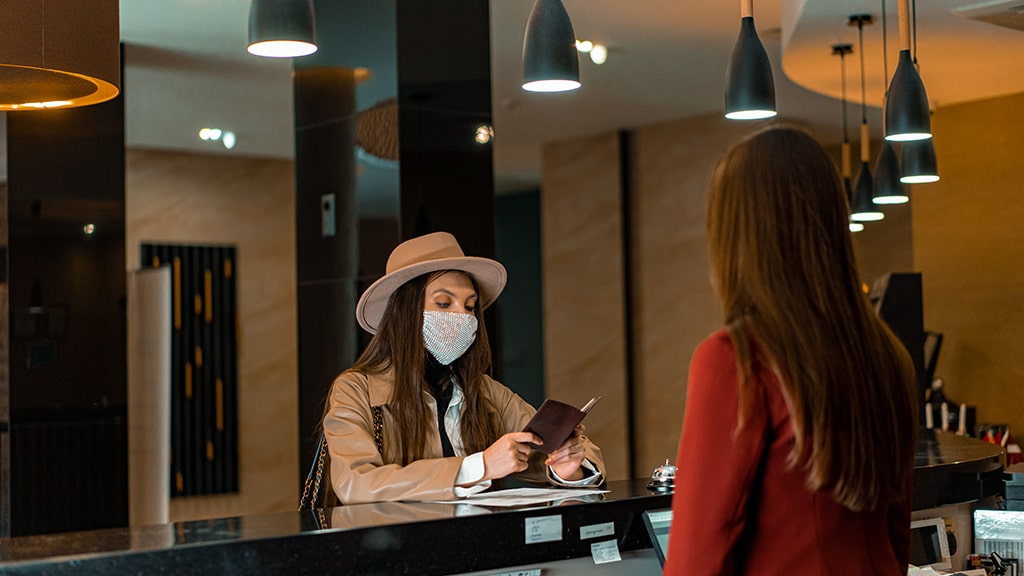
The topic of employees led to a discussion among the panel about innovative training and onboarding, and how ingenuity can improve the experience and outcomes for staff and managers who are learning something new – whether it’s a new tech tool or a learning a brand-new job as a manager. When Shefsky worked for Hilton, they “gamified” the training for digital keys, and it was very successful, adding the importance of getting “these experiences into the hands of team members, get them feeling and experiencing it, letting them play with pilots and prototypes or having training that is very true to life, so that they can empathize with the guest.” Leong-Lyons described how Hyatt converted its General Manager on-boarding to remote, out of necessity. Instead of traveling to a training site and attending face-to-face sessions, the GMs participated in group sessions remotely and did their “homework” assignments at their own hotels. Because the GMs were on-property while they were learning, they were getting to know their staff and their properties, improving morale and their own confidence.
The session wrapped up with a question asking the panelists to predict the use of facial recognition, and there was consensus that this technology crosses the privacy line and is unnecessary in hotels. There are other ways to save guests’ preferences, through databases and loyalty programs with strict privacy policies.
The Future of Hospitality
The finale of the Summit was a conversation with a panel of industry leaders in Providence, home of JWU’s founding campus. The panelists represented a variety of industries within hospitality, including tourism, food & beverage, hotels, and entertainment. All panelists enthusiastically shared their stories of resilience and the lessons they learned for the future by adapting their businesses during the historic pandemic.
Takeout is in
Tobey Sanborn '97, Senior General Manager of Newport Restaurant Group, explained how much his managers and staff learned from offering takeout and curbside pickup, particularly at high-end restaurants which typically did not offer food to-go prior to the pandemic. They designed takeout menus with food that would travel well, and takeout food is now standard at the restaurants.
Food trucks are in demand
Eric Weiner '93, CEO and Founder of FoodTrucksIn.com, was able to get his food trucks back in business faster than most hospitality businesses, because the trucks allowed them to serve people safely outdoors. Currently, there is a high demand for food trucks to provide services in unexpected places for food trucks, such as college campuses and corporate office parks. They are also catering events such as backyard weddings for people who “are looking for traditional kind of food service in a less traditional environment.”
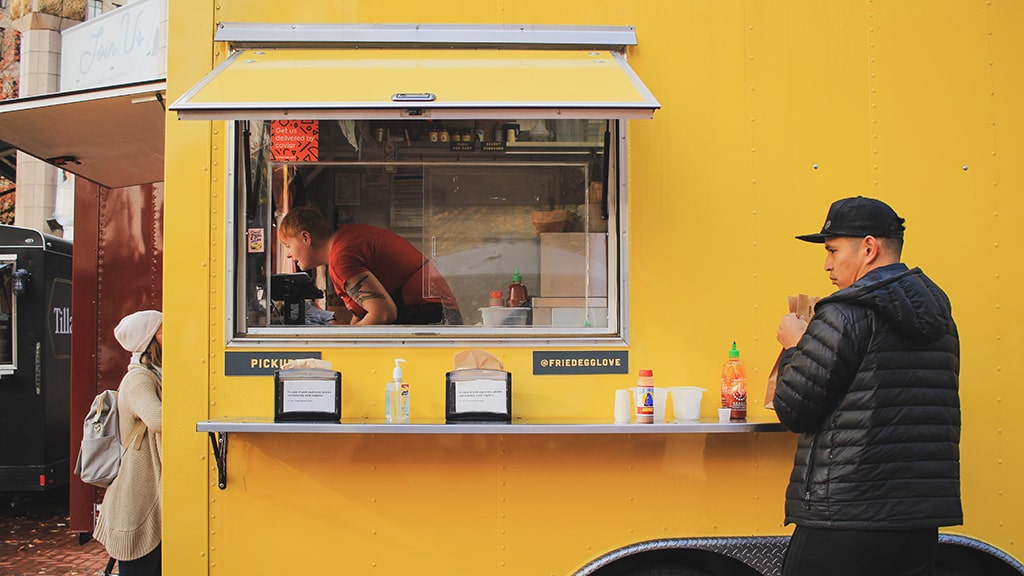
There's a right way to reopen
Michael Canini '00 is the General Manager of ALOFT Providence, the city’s newest hotel. The ALOFT is an exciting addition to the city’s Innovation and Design district, with its rooftop bar, backyard terrace, and monthly live music events. While Mr. Canini is leading the opening of a new hotel, he was most recently a senior manager of the Newport Marriott, which remained open in the period in 2020-2021 when most hotels were closed. He and his associates learned to adapt quickly during that period and became a model hotel for the “right way to reopen”.
Alan Chille, Vice President of Professional Facilities Management and General Manager of the Providence Performing Arts Center (PPAC), is thrilled to be offering live shows again. PPAC reopened with the national tour of “Pretty Woman” in October and successfully brought 20,000 people through the building at 84% capacity. Chille described the importance of keeping patrons safe, as well as the challenges of following the strict safety rules imposed by the road shows. He said that the touring Broadway companies are “trying to create a bubble backstage,” requiring masks, vaccines, and frequent PCR tests. Another service his venues are offering patrons is more mobile ticketing and cashless concessions.
Look closer at local tourists
Kristen Adamo, President & CEO of the Providence Warwick Convention & Visitors Bureau, is rebooking canceled conventions and focusing tourism marketing on the “drive market”, visitors who are within driving distance to the destination.
One lesson that much of the world learned during the darkest time of lockdown was how much we need and crave what hospitality offers.
One lesson that much of the world learned during the darkest time of lockdown was how much we need and crave what hospitality offers. Sanborn explained it this way: “There are so many things that we learned from sitting at home for three months, and I think we all understand that community gatherings, finding a great place for dinner, sitting in a bar unobstructed with a perfect stranger and sharing stories and thoughts and ideas are really what hospitality is all about.” Adamo summed it up like this: “I think the role that the tourism industry plays in a local economy has been exposed. I think before this people thought we were a… nice thing to have. And then when this all went away, the community really started to understand the dollars and cents involved in the hospitality industry, the people involved in the hospitality industry, the impact we make on the quality of life.”
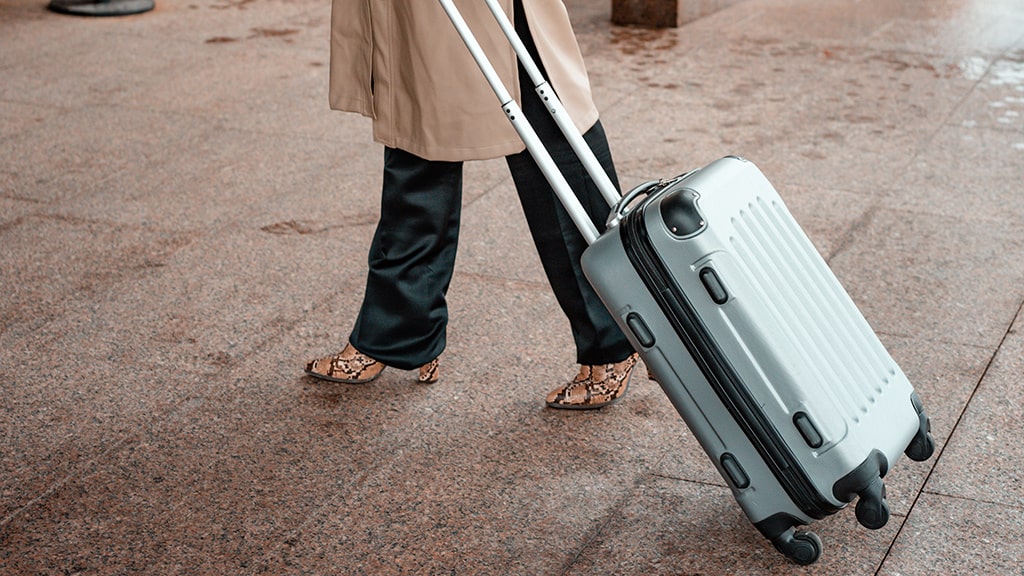
These hospitality leaders also acknowledged the challenges in staffing, and they are coming up with ideas to attract talent that were unusual in hospitality in the past. Sanborn’s company is offering a more generous PTO (paid time off) program and hinted at a possible four-day work week in the future. He said that “our industry is paying higher than ever wages”.
The panelists agreed that now is the time to enter the hospitality industry. According to Canini, “The future of hospitality … is being shaped right now, we are starting again from the ground.” He explained that hospitality companies are finding ways to be more flexible, such as allowing people with administrative jobs to work from home. He advised hospitality students to get started and work hard now, “and you'll watch yourself grow and grow, and your titles get bigger and bigger … making more and more money.” Sanborn said, “If you're good at what you do and you love making people happy, you're going to be really successful in the hospitality industry.”
